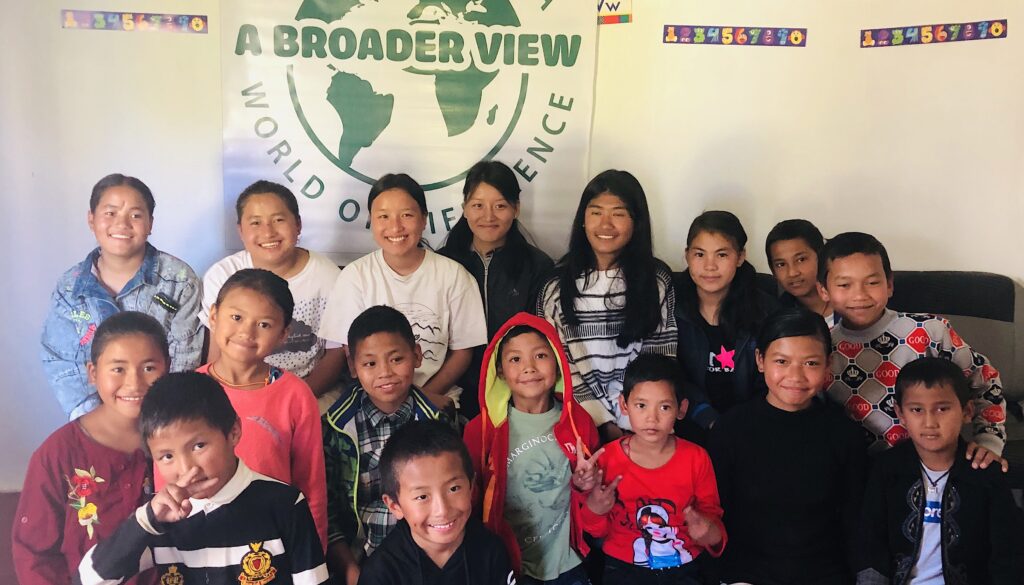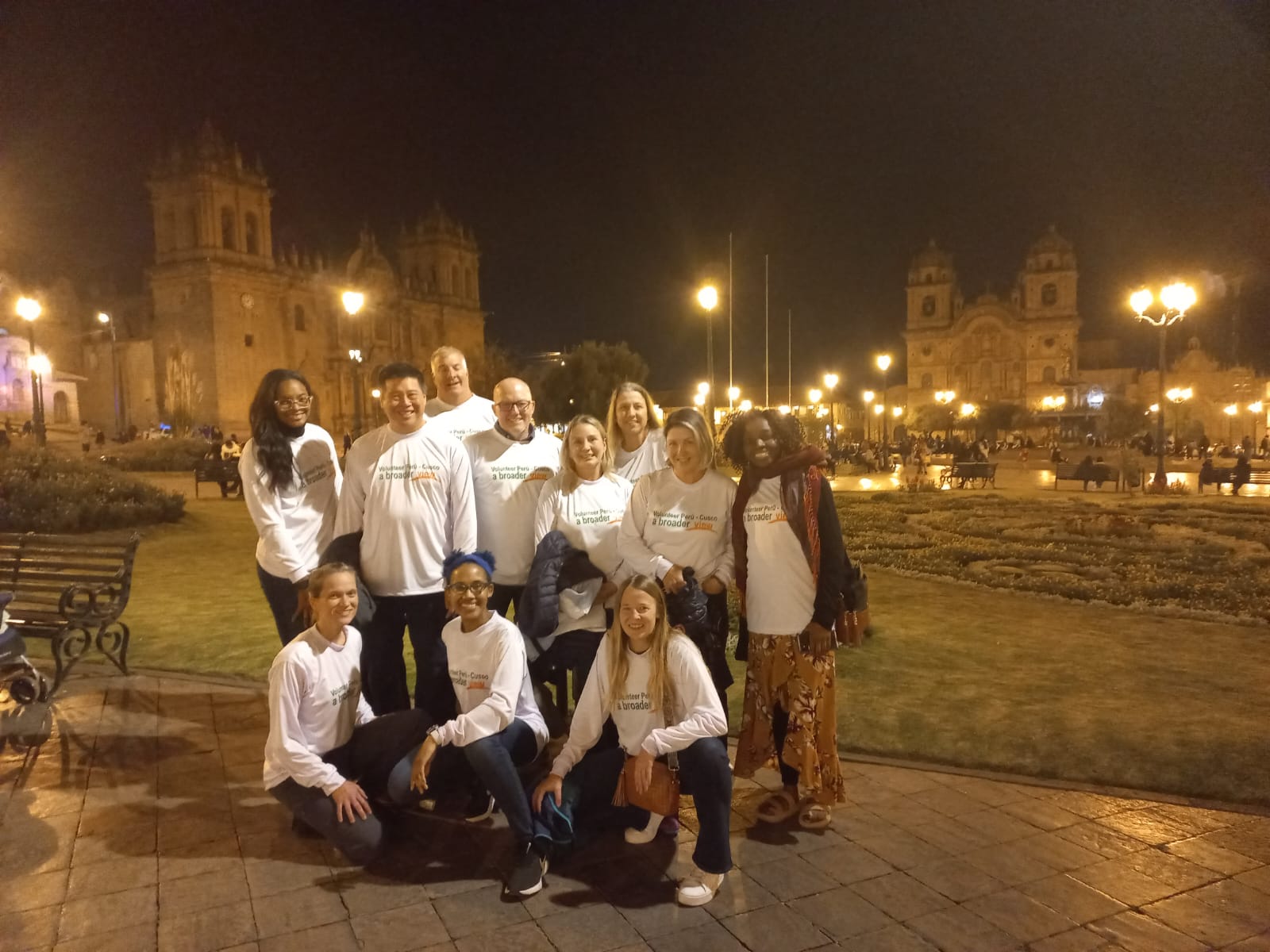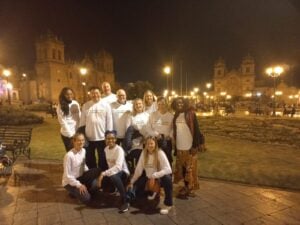Discover the key information you should be aware of before embarking on a rewarding volunteer experience in Kathmandu, Nepal. Explore these valuable insights at Abroaderview.org
Are you considering volunteering in Nepal, specifically in the vibrant city of Kathmandu? If so, it’s important to have a solid understanding of what to expect before embarking on this meaningful journey. In this blog post, we’ll provide you with a detailed description of 20 essential things you need to know before volunteering in Kathmandu, Nepal. Read on to gain valuable insights and ensure you make the most of your volunteer experience!
Content List:
- Introduction to Volunteering in Kathmandu
- Research and Choose a Reputable Volunteer Organization
- Understand the Cultural Context
- Visa and Entry Requirements
- Volunteer Placement Options
- Duration of Volunteering Programs
- Language Considerations
- Cost and Financial Planning
- Accommodation and Living Arrangements
- Safety and Security Measures
- Health and Vaccination Preparations
- Packing Essentials for Nepal
- Local Transportation in Kathmandu
- Weather and Climate in Kathmandu
- Cultural Etiquette and Customs
- Engaging with the Local Community
- Work Responsibilities and Projects
- Personal Development and Skill Building
- Maintaining a Positive Attitude and Flexibility
- Making a Lasting Impact as a Volunteer
- Introduction to Volunteering in Kathmandu Volunteering in Kathmandu provides an opportunity to make a positive impact while immersing yourself in the unique culture and warm hospitality of Nepal. Learn about the various volunteering projects available and the transformative experiences that await you.
2. Research and Choose a Reputable Volunteer Organization Before embarking on your volunteering journey, it is crucial to research and select a reputable volunteer organization like Abroaderview.org. Look for organizations that align with your values, provide necessary support, and have a strong track record of impactful projects in Kathmandu.
3. Understand the Cultural Context Nepali culture is rich and diverse, so it’s essential to familiarize yourself with local customs, traditions, and social norms. Respect for cultural practices will help you build meaningful connections with the local community and ensure a positive experience.
4. Visa and Entry Requirements Ensure you have the correct visa and necessary travel documents to enter Nepal legally. Research the visa requirements specific to your country of residence and consult with the Nepalese embassy or consulate for accurate information.
5. Volunteer Placement Options Explore the different volunteer placement options available in Kathmandu, such as education, healthcare, community development, or environmental conservation. Consider your skills, interests, and the impact you want to make when choosing a project.
6. Duration of Volunteering Programs Volunteer programs in Kathmandu vary in duration, ranging from a few weeks to several months. Evaluate your availability and commitment level to select a program length that aligns with your goals and personal circumstances.
7. Language Considerations While English is widely spoken in Kathmandu, learning basic Nepali phrases can greatly enhance your experience and help you connect with locals on a deeper level. Consider taking language lessons or using language-learning resources before your trip.
8. Cost and Financial Planning Volunteering in Kathmandu involves costs such as program fees, accommodation, meals, transportation, and personal expenses. Create a budget and ensure you have enough funds to cover these expenses throughout your volunteering period.
9. Accommodation and Living Arrangements Understand the accommodation arrangements provided by your volunteer organization. It could be a homestay, volunteer house, or shared apartment. Learn about the facilities, amenities, and living conditions to prepare accordingly.
10. Safety and Security Measures Prioritize your safety by researching the safety situation in Kathmandu and following any guidelines or recommendations provided by your volunteer organization. Familiarize yourself with emergency procedures and maintain caution in unfamiliar surroundings.
11. Health and Vaccination Preparations Consult with a healthcare professional or travel clinic to understand the necessary vaccinations and health precautions for Nepal. Carry a basic first aid kit and any required medications to ensure your well-being during your volunteering stint.
- Packing Essentials for Nepal Pack appropriate clothing, taking into account the weather and cultural sensitivities. Don’t forget essentials like comfortable shoes, a hat, sunscreen, insect repellent, a reusable water bottle, and a sturdy backpack. Additionally, consider bringing a camera to capture the breathtaking landscapes and vibrant culture of Nepal.
- Local Transportation in Kathmandu Familiarize yourself with the transportation options available in Kathmandu, such as buses, taxis, and rickshaws. Learn about the local transportation system and plan your daily commute to your volunteering site accordingly.
- Weather and Climate in Kathmandu Kathmandu experiences a range of climates throughout the year. Be prepared for hot summers, cool winters, and the possibility of monsoon rains. Pack suitable clothing layers to accommodate these weather changes and make the necessary adjustments to your daily routine.
- Cultural Etiquette and Customs Respect for local customs is vital in Nepal. Learn about appropriate behavior, greetings, and gestures to show cultural sensitivity. Remember to remove your shoes when entering homes, temples, or other sacred places and dress modestly when required.
- Engaging with the Local Community Embrace the opportunity to interact with locals and build connections. Engage in meaningful conversations, be open-minded, and show genuine interest in the culture, traditions, and stories shared by the people you meet. Building relationships will enrich your volunteering experience.
- Work Responsibilities and Projects Understand the specific responsibilities and tasks associated with your chosen volunteer project. Communicate with your volunteer organization to clarify expectations, goals, and the impact your work will have on the local community. Embrace the challenges and opportunities that arise.
- Personal Development and Skill Building Volunteering in Kathmandu offers a chance for personal growth and skill development. Be open to learning from the local community and your fellow volunteers. Take advantage of training opportunities and use your unique skills to contribute effectively to your project.
- Maintaining a Positive Attitude and Flexibility Volunteering in a different country can present unforeseen challenges. Maintain a positive attitude and be flexible in adapting to new situations. Embrace cultural differences, navigate language barriers, and approach any hurdles with resilience and an open mind.
- Making a Lasting Impact as a Volunteer The ultimate goal of volunteering is to make a lasting impact on the local community. Be proactive in identifying areas where you can contribute beyond your assigned tasks. Collaborate with locals, share knowledge, and empower individuals to create sustainable change.

FAQs:
Q1. Do I need previous volunteering experience to volunteer in Kathmandu? No, previous volunteering experience is not always necessary. Many volunteer programs in Kathmandu welcome individuals with a passion for making a difference, regardless of prior experience. Whether you’re a seasoned volunteer or new to volunteering, there are opportunities available for everyone to contribute and make a positive impact.
Q2. What types of volunteer projects are available in Kathmandu? Kathmandu offers a wide range of volunteer projects to cater to different interests and skills. You can choose from projects such as teaching English, healthcare assistance, orphanage support, women’s empowerment, environmental conservation, community development, and more. Research various organizations to find a project that resonates with you and allows you to contribute to a cause you are passionate about.
Q3. How much does it cost to volunteer in Kathmandu? The cost of volunteering in Kathmandu can vary depending on factors such as the duration of your program, the organization you choose, and the accommodations provided. It typically includes program fees, accommodation, meals, and in-country support. Additionally, consider expenses related to flights, visas, vaccinations, travel insurance, and personal expenses. It’s important to carefully review the costs associated with your chosen volunteer program and create a budget accordingly.
Q4. Is it safe to volunteer in Kathmandu? Like any travel destination, it’s essential to prioritize safety and take necessary precautions when volunteering in Kathmandu. While Nepal, including Kathmandu, is generally considered safe for travelers, it’s important to stay informed about the local situation and follow any safety guidelines provided by your volunteer organization. Familiarize yourself with local customs and norms, be aware of your surroundings, and take appropriate measures to ensure your safety. It’s also advisable to have travel insurance that covers volunteering activities.

Q5. What should I pack for my volunteer trip to Nepal? Packing for your volunteer trip to Nepal requires careful consideration of the local climate and the specific requirements of your project. Here are some essentials to consider:
- Comfortable clothing suitable for the local climate, including lightweight and breathable items for the warmer months, and warm layers for cooler evenings or higher altitudes.
- Sturdy and comfortable shoes suitable for both urban areas and outdoor activities.
- A hat, sunglasses, and sunscreen to protect yourself from the sun.
- Insect repellent to guard against mosquitoes and other insects.
- A reusable water bottle to stay hydrated.
- Basic toiletries and personal hygiene products.
- Any required medications or prescriptions.
- A first aid kit with essential medical supplies.
- A travel adapter for electrical devices.
- A daypack or backpack for day trips or excursions.
- Travel documents, including your passport, visa, and any necessary permits or copies.
- A camera or smartphone to capture and document your volunteering experiences.
Remember to pack light and prioritize essential items, keeping in mind any specific requirements or recommendations provided by your volunteer organization.
Conclusion:
Volunteering in Kathmandu, Nepal offers a unique opportunity to make a difference while immersing yourself in a rich cultural experience. By equipping yourself with the knowledge shared in this blog post, you’ll be well-prepared to embark on a rewarding journey that positively impacts both you and the local community. Remember to choose a reputable volunteer organization like Abroaderview.org to ensure a safe and fulfilling experience. Embrace the adventure and embrace the opportunity to create lasting memories while contributing to meaningful change in Kathmandu, Nepal.
-
Safe Solo Volunteering Abroad | Empowerment FemalesThrough Service with ABV

Embrace the adventure of a lifetime with ABV’s supported solo volunteering programs. Create lasting friendships, make a real difference, and explore the world safely under a supportive umbrella. Recommend Peru, Ecuador, Colombia, and more. Table of Contents Introduction to ABV and Solo Volunteering Traveling solo can be a thrilling yet daunting endeavor. A Broad View…
-
Empowerment Through Sustainable programs: Volunteer Opportunities in Peru Cusco

Discover empowering volunteer opportunities in Peru Cusco with www.abroaderview.org. Support sustainable programs and make a positive impact while gaining valuable experiences.
-
Midwives & Obstetricians: Empower Mothers & Babies Abroad

Discover how midwives and obstetricians from abroad can empower mothers and babies through the programs offered by www.abroaderview.org. Make a difference today.



